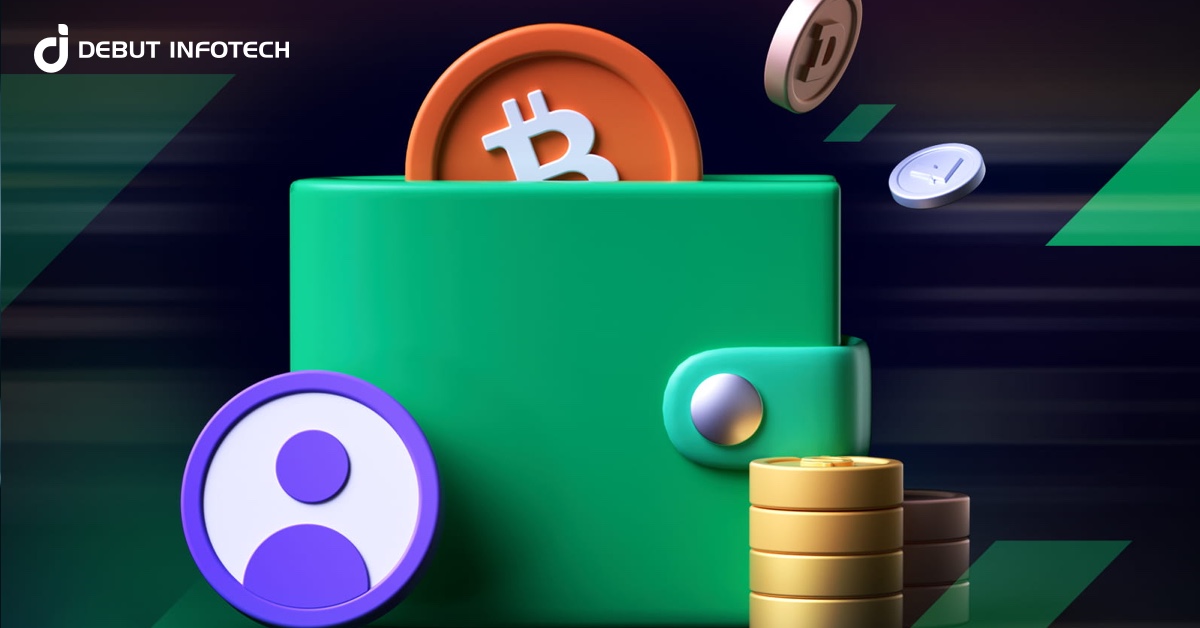In the rapidly evolving world of cryptocurrencies, decentralized crypto wallets are becoming increasingly essential. They offer users greater control over their digital assets, enhanced security, and privacy. This comprehensive guide will delve into everything you need to know about decentralized crypto wallets, how they work, their benefits, and how to choose the best one for your needs.
What is a Decentralized Crypto Wallet?
A decentralized crypto wallet is a digital wallet that allows users to store, manage, and interact with their cryptocurrencies without relying on a central authority or intermediary. Unlike centralized wallets, which require users to trust a third party with their private keys, decentralized wallets give users full control over their private keys and, by extension, their funds.
How Decentralized Crypto Wallets Work
Decentralized crypto wallets operate on the principles of blockchain technology. When you create a wallet, a pair of cryptographic keys is generated: a public key and a private key. The public key is your wallet address, which you can share with others to receive funds. The private key, however, must be kept secure as it grants access to your funds.
Transactions made with decentralized wallets are recorded on the blockchain, ensuring transparency and immutability. These wallets often interact with decentralized applications (dApps) and decentralized finance (DeFi) platforms, enabling users to participate in the broader crypto ecosystem.
Benefits of Decentralized Crypto Wallets
1. Enhanced Security:
Decentralized wallets eliminate the need for a third party to hold your private keys, reducing the risk of hacks and theft. As long as you keep your private key secure, your funds are safe.
2. Privacy:
With decentralized wallets, you are not required to provide personal information, preserving your anonymity. Transactions are pseudonymous, and your financial activities are not tied to your identity.
3. Full Control:
Users have complete control over their funds and transactions. You can send and receive cryptocurrencies, interact with dApps, and participate in DeFi activities without any intermediary interference.
4. Accessibility:
Decentralized wallets are accessible from anywhere in the world. All you need is an internet connection and your private key to manage your funds.
Types of Decentralized Crypto Wallets
1. Software Wallets:
These are applications or software programs that you can install on your computer or mobile device. They are user-friendly and offer a balance between security and convenience.
2. Hardware Wallets:
Hardware wallets are physical devices that store your private keys offline. They are considered the most secure option as they are immune to online threats.
3. Paper Wallets:
A paper wallet involves printing your private and public keys on a piece of paper. While secure from online attacks, paper wallets are susceptible to physical damage and loss.
4. Web Wallets:
Web wallets are accessed through a web browser. They are convenient but generally less secure than software or hardware wallets since they are always connected to the internet.
How to Choose the Best Decentralized Crypto Wallet
When selecting a decentralized crypto wallet, consider the following factors:
1. Security Features:
Ensure the wallet has robust security features, such as encryption, multi-signature support, and backup options.
2. User Experience:
The wallet should be user-friendly and easy to navigate, especially for beginners. Look for wallets with intuitive interfaces and helpful customer support.
3. Compatibility:
Check if the wallet supports the cryptocurrencies you own or plan to own. Some wallets are specific to certain coins, while others support multiple currencies.
4. Development and Community Support:
Opt for wallets that are actively developed and have a strong community. Regular updates and a vibrant user base are indicators of a reliable wallet.
5. Additional Features:
Consider any extra features the wallet may offer, such as staking, DeFi integration, or hardware wallet compatibility.
Top Decentralized Crypto Wallets in 2024
1. MetaMask:
MetaMask is a popular browser extension wallet that supports Ethereum and ERC-20 tokens. It integrates seamlessly with various dApps and DeFi platforms, making it a favorite among crypto enthusiasts.
2. Trust Wallet:
Trust Wallet is a mobile wallet that supports a wide range of cryptocurrencies. It offers a simple interface, built-in exchange, and staking features.
3. Ledger Nano X:
The Ledger Nano X is a hardware wallet known for its high security. It supports over 1,800 cryptocurrencies and can be managed via a mobile app.
4. Trezor Model T:
Another reputable hardware wallet, the Trezor Model T, offers advanced security features and supports a wide array of coins and tokens.
5. Exodus:
Exodus is a software wallet with a sleek design and easy-to-use interface. It supports multiple cryptocurrencies and offers a built-in exchange feature.
Best Practices for Using Decentralized Crypto Wallets
1. Backup Your Wallet:
Always backup your wallet by writing down your recovery phrase. Store it in a secure location, as it is the only way to recover your wallet if you lose access.
2. Keep Your Private Key Secure:
Never share your private key with anyone. Store it in a secure place, preferably offline, to prevent unauthorized access.
3. Use Strong Passwords:
If your wallet allows for password protection, use a strong, unique password and enable two-factor authentication if available.
4. Stay Updated:
Regularly update your wallet software to benefit from the latest security patches and features.
5. Be Cautious with dApps:
Only interact with reputable dApps and DeFi platforms. Scammers often create fake dApps to steal funds.
The Future of Decentralized Crypto Wallets
The future of decentralized crypto wallets looks promising as the adoption of cryptocurrencies and blockchain technology continues to grow. Innovations in security, user experience, and interoperability are expected to enhance the functionality and accessibility of these wallets.
As decentralized finance and Web3 technologies advance, decentralized wallets will play a crucial role in enabling seamless interaction with decentralized services and protocols. The focus will likely shift towards improving user education, reducing the complexity of managing private keys, and integrating more sophisticated features to cater to both novice and experienced users.






Comments